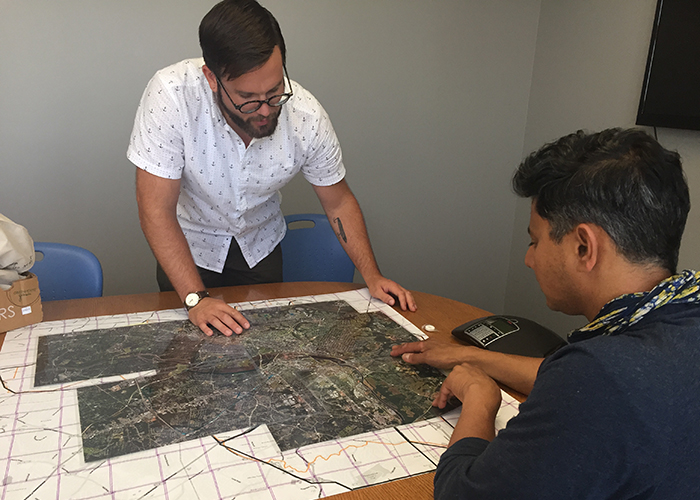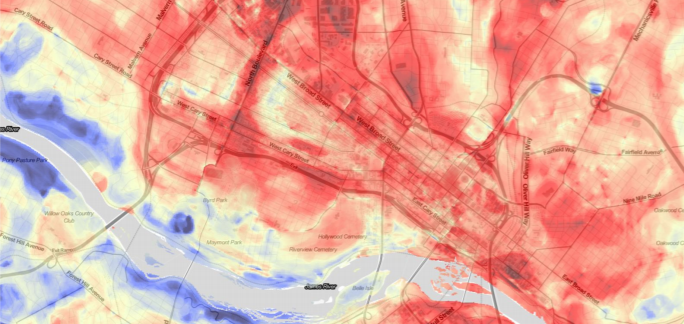Eight Cities for Urban Heat Island Mapping This Summer

[Jeremy Hoffman, a climate and earth scientist at the Science Museum of Virginia, left, and Vivek Shandas, a professor of urban studies and planning at Portland State University, design the routes that citizen scientists will take to collect heat data for mapping Richmond’s heat islands last summer. Photo courtesy of Jeremy Hoffman via NOAA]
Cities that have been offered support for UHI mapping campaigns for 2019 are: Boston and Worcester, Massachusetts; West Palm Beach, Ft. Lauderdale, and Miami, Florida; Yonkers, New York; Seattle, Washington; and Honolulu, Hawaii. Additional cities are in the planning stages, preparing to run campaigns in 2020; organizers from these cities have been invited to participate in events that occur this summer.

[Map from Richmond, VA, urban heat island study last summer. Red shows hotter areas and blue shows cooler areas. From NOAA]
Working with equipment, methodology, and collaborators from CAPA Strategies and the Science Museum of Virginia, participating cities will mobilize community members to drive pre-selected routes through their cities three times per day, collecting temperatures and GPS locations every second. The image above shows a color-coded path along one driver’s route in Richmond, Virginia. Collaborators will process the gathered data to produce high-resolution maps of temperature in the morning, afternoon, and evening across each city. Community groups that participate in the campaign will use the maps to promote resilience-building actions.
In the past few years, similar successful campaigns were produced in Washington D.C., Baltimore, and Richmond, VA.